Reckless Records RIP - Part 9: Keep The Customer Satisfied
(or "Everything I know about second-hand record retail I learnt by being rude to customers at Reckless Records" by someone a bit like that bloke in 'High Fidelity')
Over the last couple of weeks I've been writing about what it was like to work at Reckless Records, and, last week, in the previous part of this series, I was looking at the fact that potential customers used to write in with long lists of impossible to find records.
I'm now very firmly an advocate of user-centred design and of always putting the customer's wishes first in any application or website I work on, but back in my days at Reckless I wasn't so keen. CCR stood for ace swamp-rockers Creedence Clearwater Revival, not customer-centred retail.
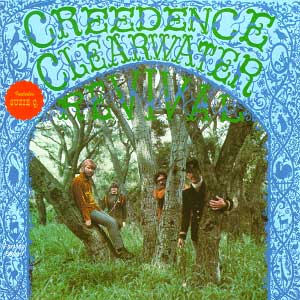
Old adverts for Reckless used to boast about the shop's "friendly service", which was a bit of wishful thinking on the part of whoever had approved the advert copy.
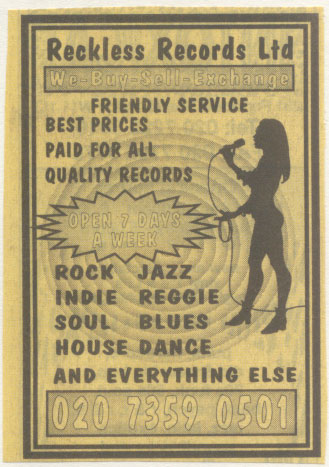
In fact, behind the counter customers were always dismissively referred to as 'custies' - a play on the 'Crusty' movement of the time.
At times it seemed like working in a second-hand record shop was like a war of attrition between the customers and the staff as to who had the upper hand at any given point. Almost any transaction had elements in it that could quickly escalate into a row.
When customers were selling records and CDs, for example, the issue of whether they had ID or not was key. Customers were meant to have two forms of ID with them, including proof of address, when they sold items.
In practice, of course, there were regular customers you were on first names terms with who we saw every week and who didn't need to produce it every time. Unless, of course, you'd just had a row with someone else at the counter about the ID requirement, which meant you couldn't then be seen to be waiving it for the chosen few. This always went down badly.
One of my claims to fame during my tenure in the mail order department in Islington was really annoying Mark Lamarr. He turned up to sell some CDs, and I insisted that he produce some ID. He was flabbergasted that I was being such a jobsworth. But a couple of years later we made up, when he had to sheepishly come up to the counter and confess that he had just dropped a load of CD sleeves down the back of one of the racks in the Soho branch, and please could someone help him retrieve them, as he really wanted them.

Another irritation from the staff point of view, which probably just seemed like plain mardiness to a new customer, was the whole 'getting the stuff out of the bag' process. Often customers would say I've got some CDs to sell, and then plonk a bag down on the counter, to which staff would huffily reply "Can you get them out of the bag please".
Far from just being rudeness or laziness, it was actually a serious issue for us. Nearly all staff at some point or other had reached inside a stranger's bag only to suddenly find themselves touching something unsavoury like used tissues, or something unexpectedly sharp, which even on one occasion appeared to be a used syringe.
Even when people were simply buying discs or vinyl it was not a straightforward transaction.
If you bought a CD from Virgin or HMV it came shrinkwrapped with a barcoded price sticker on it - you knew it was new and you knew how much it cost.
If you were buying something from Reckless, you knew that it might have scratches or jumps, and that the price had been set somewhat arbitrarily by some miserable oik like me behind the counter.
Thus there was always an element of bartering, with customers saying things like "You've graded this at Near Mint and priced it at £7, but in the Record Collector book it is listed at £6. I think it is only in 'Very Good' condition. Will you do it for £4.50?".
That could get more than a little wearing on a busy Saturday afternoon when you were desperately trying to get through the queue of customers at the counter so that you could get out for your overdue lunch-break.
Reckless also used to offer a no-quibble money back guarantee if something didn't play OK. Even before the days of CD burners being widely available, certain customers would regularly abuse this. They would come back day after day claiming that their previous CD purchase skipped, and could they swap it for this one.
One purchase of a £9.99 CD could see them swapping discs in and out of the shop for weeks.
Occasionally a member of staff would have enough and pointedly ask whether they had considered purchasing a new CD player, as they seemed to be having a lot of trouble playing discs recently.
Reckless policy was to accept any return, and then put the item straight back out for sale, marked with the cunningly secret code 'R' for Return on the price sticker. If someone returned an item for a second time, we knew it really was faulty, but in the majority of cases we found that the person who bought it a second time was quite satisfied with it.
Or perhaps lived so far away that they never had the opportunity to return it to us - we never could tell!
I have a couple of favourite stories about customers trying to return items.
With cassettes and CDs, each came supplied with a Reckless Records guarantee card, which stated that at any time the customer could return the tape or disc back to the shop, and get two-thirds of the value in exchange. Rather foolishly this offer wasn't time-limited.
I remember one Sunday I was managing the Soho branch, and had gone for a late pub lunch-break to watch football. When I came back, there was an unholy row going on in the shop. A member of staff had refused to honour this guarantee, and the customer had asked to speak to the manager. And I was down the pub, so by the time I came back, the customer wasn't in the best of moods to start with.
And things rapidly went downhill from there.
He had clearly been hoarding cassettes he had bought from the shop, alongside their price guarantee cards, for years and years and years. He had a box full of tapes he was trying to exchange for two-thirds of their value. By this time, the late nineties, the market for second-hand tapes was negligible, and even brand new releases only sold for £4.99, if they sold at all.
This customer had a box full of 'gems' like Kid Creole And The Coconuts albums from the 80s, on cassette, which the card claimed had at one time cost him £7.99 to buy from Reckless, and so he was here to claim his £5.27 exchange.
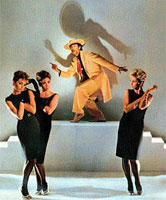
To his fury I backed up my colleague, and said that I wasn't willing to take them back at that price, as I simply couldn't sell the absolute rubbish he was bringing back.
After a lengthy stand-off, he eventually realised that I wasn't going to back down.
Of course, nowadays, with my evangelism for customer service, I would have accepted them all back through gritted teeth, and made a mental note to add a time limit onto the guarantee cards next time we got them re-printed.
In fact, before I left the store, the exchange price promise was removed from the guarantee cards because it increasingly meant the shop was buying back stock at prices it couldn't afford.
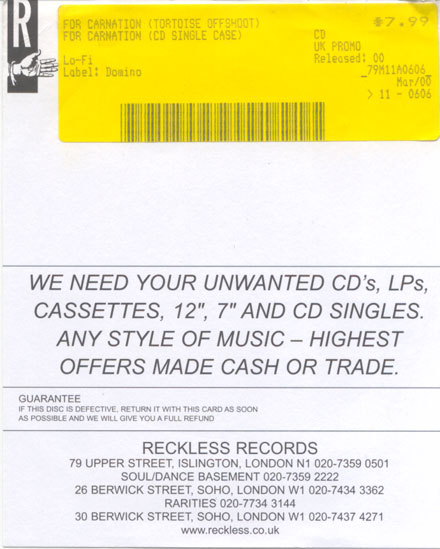
The second story involves the Beatles.
We once had a copy of the "Abbey Road" album for sale that was pressed in New Zealand.
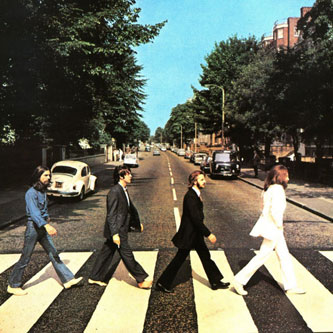
A customer had a look at it, and then ummed and ahhed about whether to buy it. With my best salesman's patter I reassured him that a pressing from New Zealand would be of equal quality to one from the UK, and suggested that it was more exotic to have an album from down under rather than the boring UK original.
He reluctantly agreed and purchased the album, but I could still tell he was slightly unsure.
A couple of days later he returned to the store.
"There's something wrong with it, it doesn't have the whole versions of the tracks".
"I don't think so", I said, "if it was known that the New Zealand pressings of Abbey Road had different mixes to the UK version, it would be a real rarity wouldn't it?"
"No, it's not right though, listen to the end of side one, it cuts off suddenly mid-song."
"Yes", I replied, "That's 'I Want You (She's So Heavy)'. It finishes abruptly like that."
"No, you don't understand", he said, "The end of the track is missing. It just suddenly stops. I think it is because it is a copy of the album from New Zealand."
"No", I replied, now getting slightly vexed about having to debate it. "That is how The Beatles released it. That track comes to a sudden halt like somebody just switched off the tape machine in the studio. It cuts off abruptly on every version of 'Abbey Road'. That is how the song goes."
Anyway, he wasn't having it, and so I accepted the album back with the minimum of good grace, and he went away happy. I wish I had been able to see his face when he finally got hold of another copy of Abbey Road.
And found that the track always did exactly the same thing regardless of where it was manufactured.
I'll be continuing this series of posts by looking at 1998, when I helped Reckless open a second branch on Berwick Street.
My favorite memory of being a shop girl at Reckless Records was when you (my boss at the time) would attempt to clear the shop at closing time. You would put on this Kevin Rowland (of Dexy's Midnight Runners fame) album (My Beauty?) covering some classic tunes. Even half way through the first song (The Greatest Love of All no less!) the whole place would be quieter than a cemetary. Unbelievable.
Hi Mara - the only problem was that secretly I was really enjoying the album...and still have a copy!